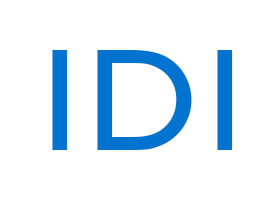The Essentials
F.A.Q.s
Remember the elevator pitch? So pre-Covid-19. Here are the first questions you need answered to begin to get a feel for the implications of identity-based management.
1. What do you mean by identity?
We’re referring to the unique combination of characteristics that reveals a company’s potential for creating value in the world — its source of productive energy.
2. We think we know our identity. Are you saying we don’t?
If you can articulate in simple terms the unique contribution your organization is capable of making as one enterprise, then, perhaps you do. If you can’t, then you most likely don’t.
3. Is identity different from purpose or mission?
Yes. Identity is who you are at your core. Purpose or mission statements can be altered from time to time, often depending on management’s priorities. By contrast, identity is constant. How that identity is expressed, however, can change as the competitive environment, and market opportunities evolve.
4. What are examples of companies’ identities?
Here are two. Dow Chemical is “Driven to constantly improve what is essential to human progress.” That may sound simple but it took months to reach this insight. The breakthrough came when, for the first time in the company’s history, we were able to trace Dow’s then-$20 billion in product sales to 10 end-use markets including health care, transportation, building and construction, and water purification. Chemicals, plastics and agri-products were what Dow made, not who they were.
Another example is Lockheed-Martin who is all about “Serving critical institutions at their moments of truth.” What we discovered were five distinct capabilities which, together, highlighted how the company developed original military, economic, and social solutions, globally. Those five capabilities were a 1) bias for performance, 2) a passion for invention, 3) a deep comprehension of consequences, 4) an affinity with vital institutions and 5) an aptitude for whole-system thinking and action. In short, Lockheed-Martin was much more than a generic defense contractor.
5. What are some of the benefits of knowing your company’s identity?
A company’s identity is like the keel of a ship that keeps it steady and on course, regardless of how stormy the weather gets. Because it’s all about value creation, identity explains how the company really makes money, so awareness of it raises the quality and consistency of CEO decision-making. Also, once an organization knows its identity, differentiation becomes natural and permanent — no one can beat you at being you!
6. How can a CEO take full advantage of the company’s identity?
Identity must first be clarified. Once clarified, the challenge is to manage through identity, using it as a lens for making smarter strategic and operational decisions in such areas as product development, acquisitions, hiring, training and communication. The process for capitalizing on identity is called identity-based management.
Identity Dynamics Institute provides an enterprise operating system, Vivo™, that gives the CEO a dashboard for seeing how energy is flowing through the company, where that flow may be impeded, and how to reduce those impediments, allowing the organization to create maximum value. Our work is the most current application of system dynamics, a field developed by Jay Forrester at MIT that makes it possible to see the interconnections among all parts of an organization and, precisely, how altering one part affects all the others.
